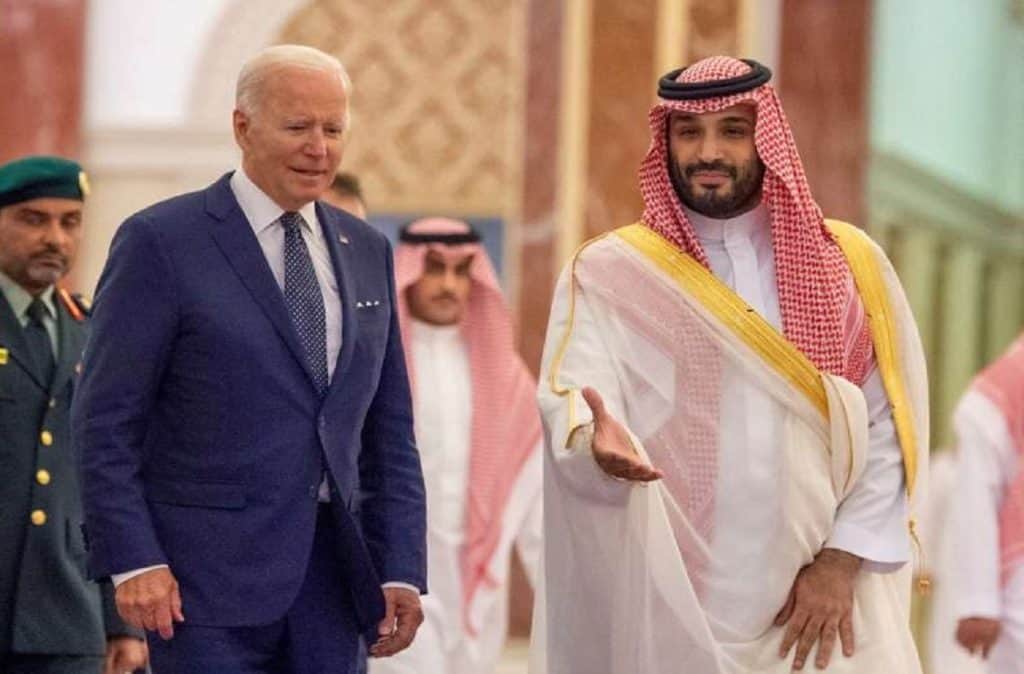By Rana Danish Nisar
After the collapse and disintegration of the USSR, the United States enjoyed the crown of World Superpower. World order, global financial systems and security were the responsibility of the United States from the beginning of the post-Cold War era.

At the threshold of the 21st century, the dynamics of global politics and affairs have changed impeccably. Power transitions have been observed globally and regionally: from bipolar to unipolar and from unipolar to multipolar. According to security specialists and international affairs experts, current international politics/relations have totally changed from those of the Cold War, especially regional and global alignments.
Today, states are more intelligent and strong to manage regional and global affairs. Due to the rise of nontraditional actors, such as terrorism and terrorist entities, the rise of digitization policy, digital globalization, digital terrorism, realignment of states, revisiting of alliances, Covid-19 pandemics, and changing international relations, traditional actors (states) are now more committed to making themselves strong to deal with new challenges and competitors. Following the quote “There are no permanent friends and enemies in international politics, but the permanent ones are the interests. Today’s enemy may be tomorrow’s friend and today’s friend may be tomorrow’s enemy” because states are concerned with their national interests and could never compromise with their interests.
With the changing dynamics and the rise of new powers and competitors in global politics, such as the rise of China, the return of winter (rise of Russia), the elephant that should have a place in the global political room (India), etc., the realism argues that “the power of the world is a game of power. Realism argues that “politics is a game of power, power for survival/security (defensive realism) or power for hegemony (offensive realism), but mostly states need more power to realize their offensive motives. Human nature is selfish and selfishness is inherited in the DNA of states, because there is no wisdom of morality in the bloody game of politics and states only need their own survival rather than that of others. Indeed, by the meaning of “alliances,” states think more about their own interests than those of other states, which is a powerful juxtaposition. Interestingly, the politics of the 21st century is not the same as that of the previous century, and the survival/security of states is more risky and challenging due to transitions in conflicts and the changing nature of enemies and warfare, i.e., fifth-generation warfare.
Since the presidency of G. W. Bush, the United States has faced a dual challenge in its global geo-strategic domains, namely Russia and the challenger China. The United States regards China as its main competitor or enemy when dealing with regional and global politics. According to John Mearsheimer, “the rise of China is not peaceful” and will have the power to challenge American global supremacy in the near future. Undoubtedly, in the $100 trillion world economy, the Dragon (China) ranks second with $19.9 trillion after the $25.3 trillion Eagle economy (United States), which economists say looks set to be replaced by China in the coming decades or years. According to the visual capitalist forum and 2022 statistics, the following picture can highlight the division of world’s 100 US$ economy.
In the context of military power and budget/spending, states are now more sensitive to their survival and security. In the context of the “security dilemma,” the rise of one state militarily leaves the “security dilemma” to another state and creates an endemic arms race around the world or regionally. According to SIPRI, at $801 billion, the United States ranks first among countries with the highest defense budgets. The figure below shows in depth the defense budgets of the top 10 countries.
According to global security experts, since the beginning of the 21st century, the U.S. goal has been to counter anti-American forces around the world, particularly in the vast Asian basin. Some international affairs gurus and intellectuals argue that the “WOTs” were also a part of the U.S. Asian geopolitics strategy to control anti-U.S. waves in Asia and monitor its competitors. G.W. Bush’s “anticipated self-defense” is actually the policy to control the growing Chinese movements in Asia. Later, Obama’s “Asia-Pacific” strategy had the same motivations as G.W. Bush. With Trump’s rise to the U.S. presidency, all movements were against American competitors.
The Indo-Pacific strategy, along with the review of all other military commands, aims to counter adversaries and build powerful alliances. In July 2022, Joe Biden made a valuable visit to the Middle East, with a focus on Israel and the Kingdom of Saudi Arabia. Interestingly, this is Biden’s first visit to the Middle East as president. Because of the changing dynamics or environment of global and regional politics and the emergence of new alliances, this visit has its value. Undoubtedly, apart from all other Arab countries, Saudi Arabia is the largest importer of arms and the United States is the largest supplier or market of arms to KSA.
Intellectually, the USA should rethink or restore strategies while dealing with prominent global and regional actors because the time has changed now and states have other options which can replace the USA’s importance easily.
The conclusion of the recent juxtaposition of the two countries does not seem significant because of the deep discussion on the murder of Jamal Khashoggi, According to the Wall Street journalist Karen Elliott House, “Biden’s visit to Saudi Arabia was worse than an embarrassment.” It seems possible that Saudi Arabia now wants to restore cordial relations with rival Iran. Moreover, the visit of the leaders of Turkey and Russia to Iran also has significance for the changing geopolitical environment in West and South Asia. Moreover, China’s $400 billion investment in Iran is an inspiring response to U.S. supremacy in the global and Arab world because we are now no longer in the Cold War era, but in the era of digital international relations.
Following the quote “Old wines with new bottles,” the U.S. and Biden in this visit have some four special reasons, namely.
I) The United States needs committed alliances to sustain American supremacy.
II) Deeply integrate Israel,
III) Promote Trump’s Abrahamic Accord means promoting and recognizing Israel by the Arab world.
IV) To prosper the U.S. arms market in Arab countries.
Because of the evolution of international relations, BOPs or alliances seem to be the best way for states to increase their supremacy or influence. In fact, the U.S. has long been a master at “making alliances.” Sometimes these alliances are tactical or may be permanent, but as a function of U.S. interests. In fact, today the nature of alliances has changed because the U.S. has more options according to its interests than during the Cold War period, when it had only two options: the USSR or the United States. Today, alliances are unwilling to compromise on their interests and do not want to involve them in the affairs of other states. Therefore, the U.S. should be very clear and careful in its choice of alliances. The KSA has an imperative and imperious position in the Middle East region, and the United States definitely needs Riyad in the power politics of the Gulf region. Therefore, the United States should deal with the KSA very cautiously because the KSA is now leading the new energetic generation of Salman Bin Abdulaziz Al Saud who knows well the tactics of international politics and diplomacy.
In addition, the U.S. wants deep integration with Israel, particularly with regard to defense merger and integration and sharing new advanced combat technology along with missiles and defense systems. Under the umbrella of the U.S.-Israel opposition, India will also gain advantages in terms of obtaining new advanced weapons and missiles that can be useful in the U.S. Indo-Pacific strategy and against China. Third, the United States wants to strengthen the “Abraham Agreement,” which aims to restore or establish relations between Arab countries and Israel. For the leader of the Muslim Ummah, recognition and establishment of relations between Israel and the KSA could be an essential part of Biden’s visit. Beyond previous and historical skirmishes, the United States wants cordial relations between Israel and the Arab world. As a result, the U.S. position will be decidedly strong.
Moreover, the United States is very familiar with the value of the Arab world in the context of the arms market. The following picture can shed light on U.S. arms sales to the Arab world. There is no doubt that the main arms manufacturing companies are in the United States and the main importers are the Arab countries.
The United States does not want to lose its largest market. There is no doubt that China is the main competitor of the United States and the United States does not want to undermine American global supremacy. In leading and concluding remarks, the Biden administration should review strategies and policies toward the Middle East. The current U.S. administration should avoid rigid behavior toward the Arab world.
In addition, the United States should think about economic issues aimed at boosting the economy rather than a high defense budget. A policy of “isolation” in some global issues should be adopted, and it should not be necessary to interfere in all issues. In the KSA context, in the era of globalization and complex interdependence and in international relations, one state cannot ignore another.
Therefore, the U.S. needs the Saudi Arabia immaculately and should avoid playing “hard politics” or ploys with Riyad. With sensible strategies and wisdom, there are surely red card days ahead that will bring peace, harmony and prosperity to the region and the world.
Rana Danish Nisar – The author is a PhD (International Relations) Student at the School of Politics and International Studies (SPIS). He holds Mphil in (International Relations), Masters in (Pakistan Studies), and Masters in (International Relations) degrees. He won acceptance Harvard Project for Asian and International Relations HPAIR (USA), 2017. His research interests are broadly in South Asian Affairs, South Asia Geo-Politics, India-Pakistan Relations, South Asian Nuclear Politics, US and South Asia, Indian Ocean, Security studies, South Asian developments studies.
(The views expressed in this article belong only to the author and do not necessarily reflect the views of World Geostrategic Insights).









